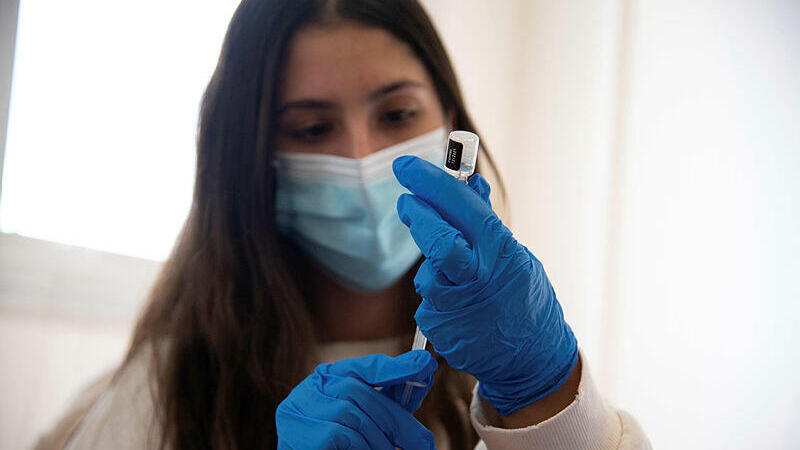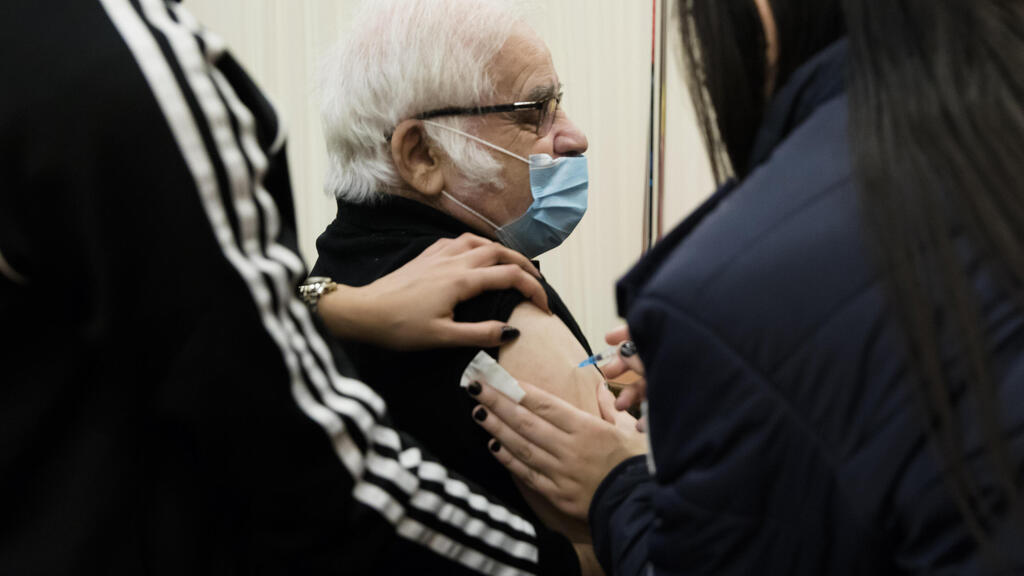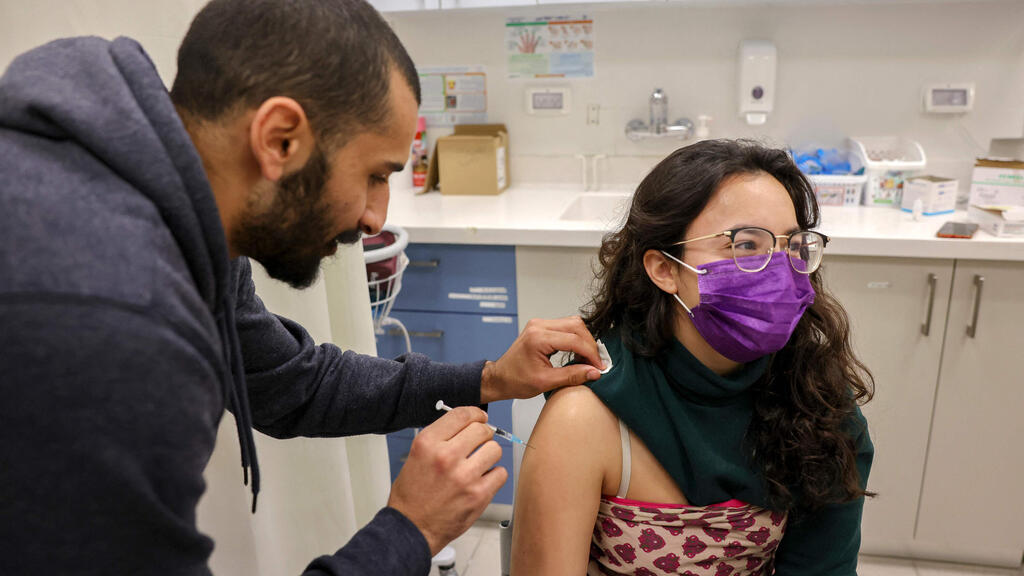On Tuesday morning, a panel of health experts advising the government on the coronavirus pandemic, recommended that the fourth coronavirus vaccine be administered to all adult population in the country.
Israel's health maintenance organizations, however, say based on the meager demand for the fourth jab among the over 60s, who were advised to get the shot at the start of January, the public's enthusiasm for another vaccination drive is lower than ever.
3 View gallery


A nurse prepares to administer fourth vaccine jab in Jerusalem
(Photo: Yoav Dudkevich)
Although the final decision on the matter is set to be made by Health Ministry Director General Prof. Nachman Ash, it is believed he will sign off on the move as soon as possible.
"I do not think the public will go crazy for the fourth vaccine," Tal Mandel, director of customer relations at the Leumit HMO, told Ynet.
"I assume that in the first few days there will be a higher demand, because anyone who has already decided they want to get vaccinated will come, but after a few days there will be a drop," Mendel said.
"Younger people who believe in vaccines and want to take care of their health will do so first."
Mandel added the recent decrease in the number of people receiving vaccines is likely down to public discussions taking place on the potential scrapping of the Green Pass mandate, as well as the Omicron variant's ability to infect the vaccinated.
The Clalit HMO, Israel's largest health fund, said they do not expect that in the first phase of the latest vaccination drive, inoculation centers will be filled with people eager to get jabbed for the fourth time.
"We are deployed nationwide and waiting for instructions," said Ruth Baruch, director of the vaccination campaign and head of the fund's nursing department. "It is difficult for me to predict, but as the age of those eligible for vaccines decreases, so does the demand."
Baruch added that she hoped the latest infection wave has made people realize the importance of vaccines in preventing hospitalizations and severe illness from coronavirus.
Dr. David Dvir, head of the primary care department at the Meuhedet health fund, also said that he does not anticipate an onslaught on vaccination centers.
"The recommendation was given in light of risk management, as we are now in the midst of the infection wave. We are now dealing with a very large burden on the hospitals, but also on the community," he said.
"The studies conducted in hospitals show the level of protection [against coronavirus] increases within six or seven days after administration of the fourth vaccine. Anything that can help, even from a personal point of view, gives us the tools to reduce the infection."



